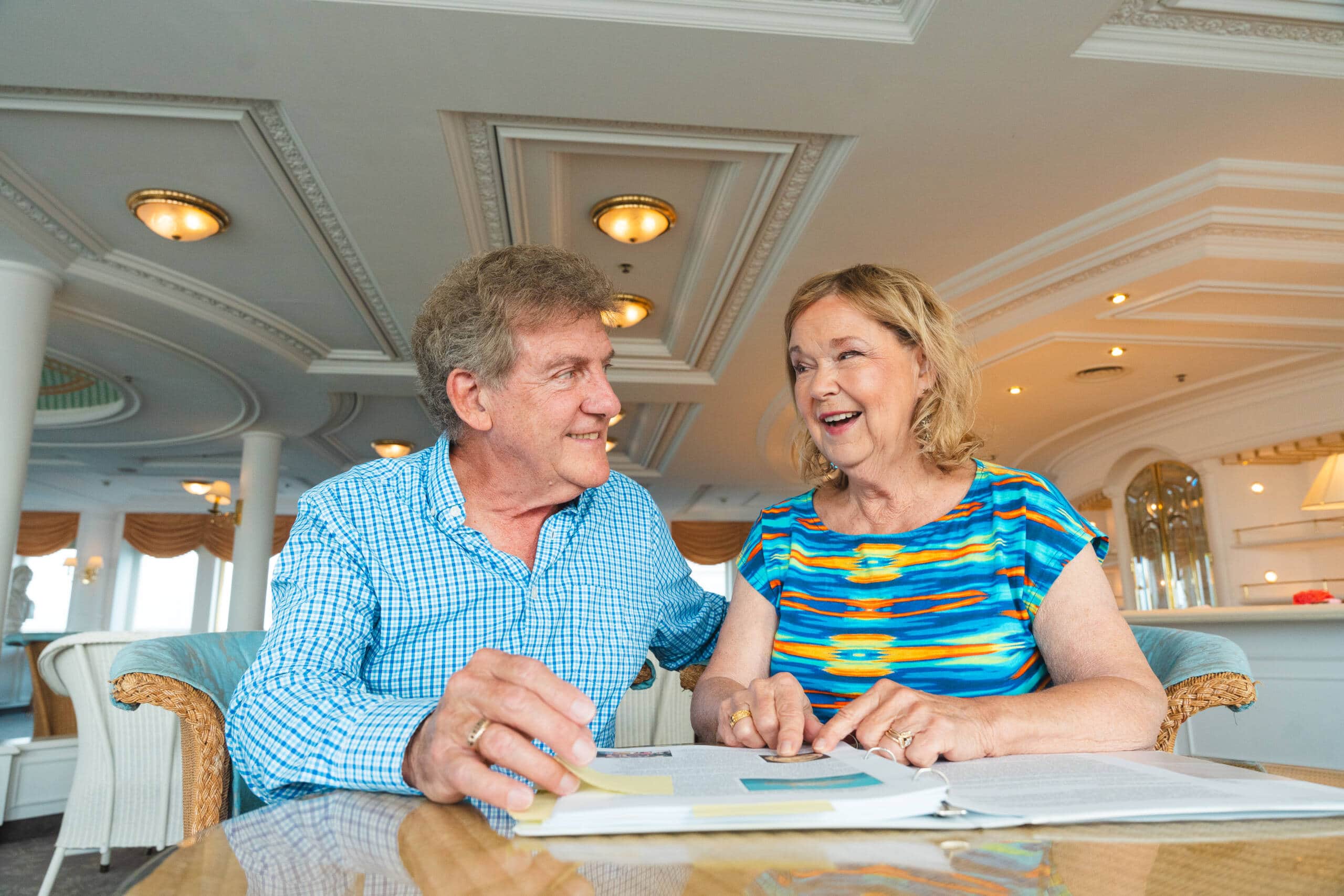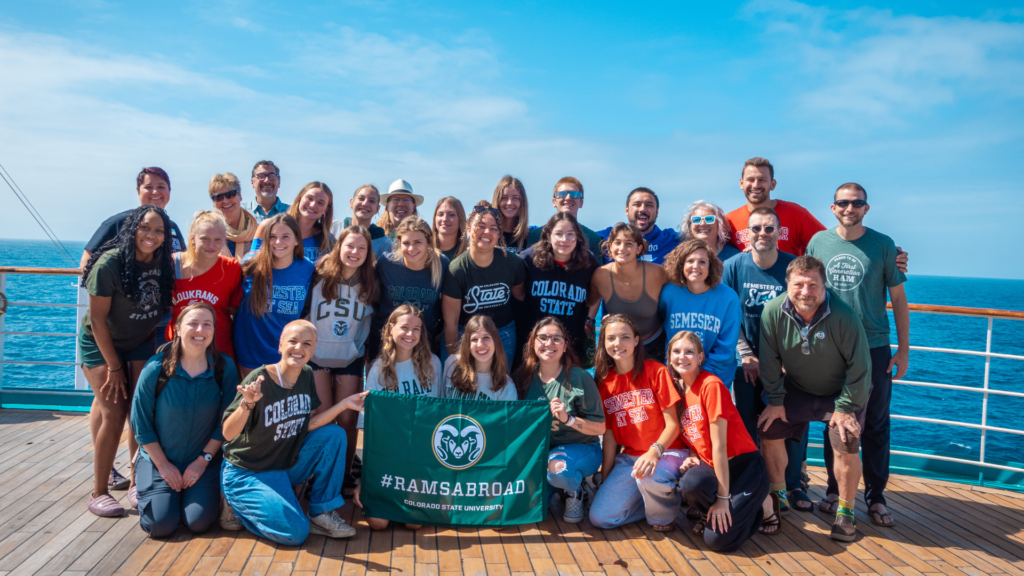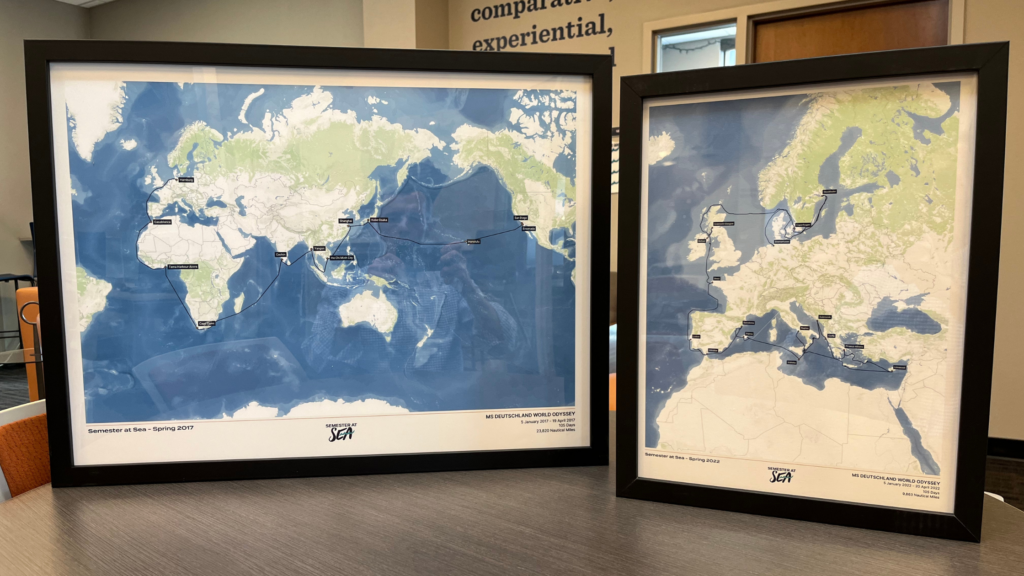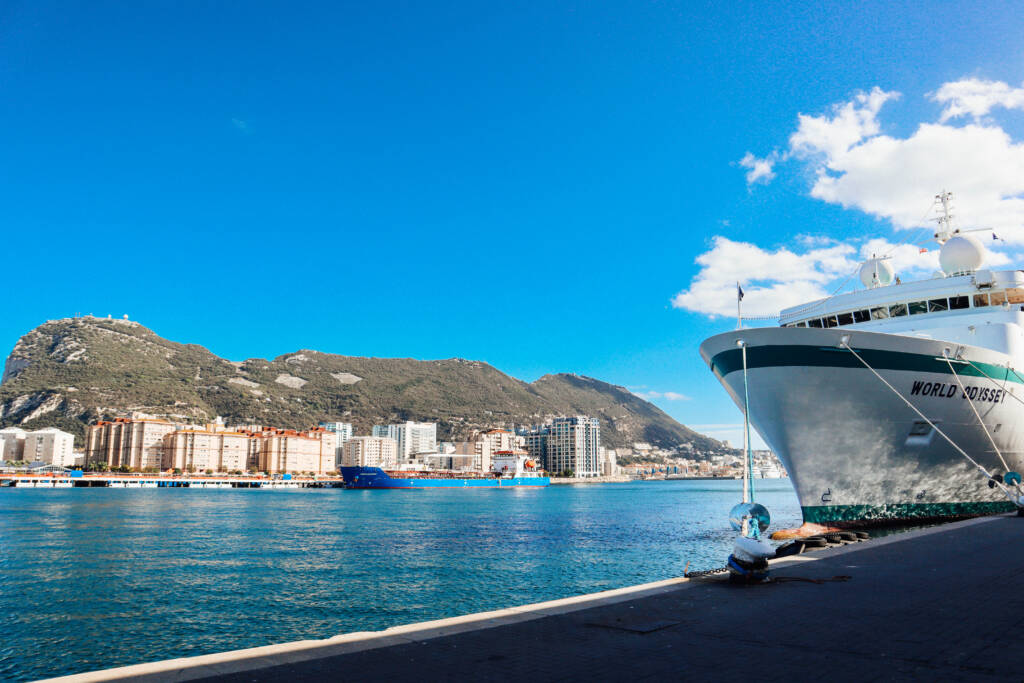Bonnie and Phil Duyff, Lifelong Learners on our Fall 2023 Voyage, originally met as students on Semester at Sea in the spring of 1971. To celebrate their 50th wedding anniversary, they are sailing again with the program that brought them together.
Their ‘71 student voyage circumnavigated the globe and included 17 different stops. They visited South Africa during apartheid, Sri Lanka when it was known as Ceylon, and still think of voyagers that impacted their lives like Arrola Cole and their Dean, Lloyd Lewan. When they sailed as students, “Semester at Sea” was called “World Campus Afloat”, and instead of the MV World Odyssey, they sailed on the SS Ryndam where telegrams and handwritten letters were the main way to contact home.
While the details of Semester at Sea have continued to change and evolve, Bonnie and Phil reflect on the enduring impact of life, learning, and love at sea.
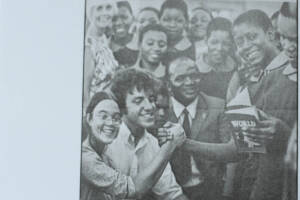
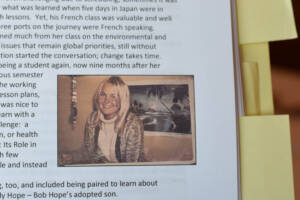
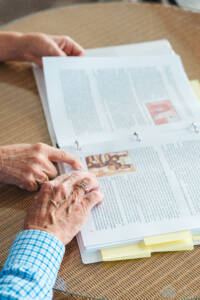
Let’s start with an introduction–how did the two of you meet?
Phil: We can say day one.
Bonnie: No, actually, the day before day one. [The day before the voyage we] gathered in a hotel. And …pretty much took over the hotel. [There was this] expectancy, the excitement of all being there, and not knowing what we were going to get to do.
What was it that initially drew each of you to Semester at Sea?
Phil: My mom and dad were both teachers. In eighth grade, I remember my mom coming home from the library with a copy of the Christian Science Monitor that talked about this university aboard a ship. Fast forward to my junior year at UPS [the University of Puget Sound] and there was a table with volunteers promoting “World Campus Afloat,” and I thought, this is the same program!
Bonnie: From the time…I can remember being alive, I was intrigued by foreign places. My uncle had been a military attaché after World War II to Japan and Indonesia, and he would send back these pictures. I was like three, four, or five years old …and I was fascinated.
Then fast forward. I guess it must have been sometime in the 60s, I’d gone to the movie theater. Whenever they would do a double [feature], they always did something in between, kind of like an ad. There was a special short documentary on “University of the Seven Seas*.” I thought that was really interesting, and I never forgot about it. [Later] I heard about the program from my friend.
*Note: Semester at Sea was also formerly called the “University of the Seven Seas” and “World Campus Afloat.” Read more about Semester at Sea’s history here.
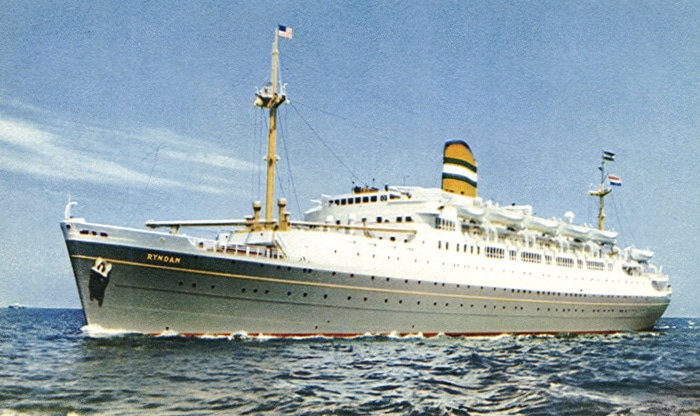
What is an experience from your 1971 voyage that has stuck with you after all these years?
Phil: I think it’d be the Ivory Coast that’s probably the most memorable…but that’s because that was our first date!
We had our pre-port tips the night before getting into Abidjan in the Ivory Coast, and somebody mentioned Peace Corps volunteers. We got off the ship, and we found the Peace Corps office and they gave us the name of a couple, a town, and a school, and we got on a local train [with] no glass in the windows.
We got into the town called Dimboko. [When we] got in, it was already dark. It was like something out of Charles Dickens. There was a little table at the train station with a candle on it.
Bonnie knew a little French. I’d started my French on the ship and knew a little bit enough to converse. We got in, went to the school, met the headmaster, and at 10 o’clock at night, we knocked on the door of the Peace Corps volunteers’ home and said, “Hi, I’m Phil, this is Bonnie, we’re from the US, and we’re staying with you.”
We went out to one of the villages. We walked through the village and met one of the students who was a student of the Peace Corps volunteers. We spoke French and they took us to the inner compound of the village to meet an elder. What an honor, a true honor. They put us in two chairs, had a chair in front of us, and brought the elder in, he was blind. We greeted them in Baoulé, and then said in French “I’m a student on an ocean-going university.” He reached out to take our hands and just squeezed them, and wouldn’t let go.
Bonnie: I think this whole lesson was, by the time we had gotten to when this was, we felt independent enough and confident in who we were to be able to feel we could go somewhere on our own and be accountable to get back in time. And to go with a language (French)… that was not our own and to feel very comfortable.
When you take a look at [the] pictures, what we were seeing doesn’t look like home at all, and yet we felt we could have a genuine experience with people, learn from them, learn from their norms…truly interact in a joyful, respectful, inclusive way. We’d learned a lot about ourselves and our abilities to be world citizens by this point. And to then know enough to say to our Peace Corps volunteer if you’re going to send us on your bikes into this village…what can we say in their language so that we can honor them? Who greets who first? Can we touch each other? Do I greet the women? How do we honor the Peace Corps workers?
Phil: When we got on the bikes we didn’t know where we were going or what we would experience but the interaction is what has stayed with us.
What’s something (skills, qualities) you learned from the journey that you’ve carried with you throughout your life?
Phil: I think [Semester at Sea] helped us be open-minded to see what was there and not make judgments… I think we now are looking at every aspect of our travel, and we try to get out into the lesser traveled areas and just absorb, learn, not be judgmental, and share as we can.
Bonnie: I think [another thing that’s stuck with me] is not to have a US-centric view of the world.
I remember growing up in a …Christian community. I didn’t know much about any other faiths, and to have the chance to be in Buddhist temples, Hindu temples, Jain temples, mosques, and then on the ship, [we shared] Passover with the Jewish community…it’s as spiritual as anywhere you go. And every population, every ethnicity finds spirituality in a different way, and it is valid. The way I was growing up doesn’t mean it’s the way even my next-door neighbor, where I live, has to believe and see the world. I think that was true for so many things.
We saw that there were universal truths to people caring about their families, money, food, and the basics but how they are expressed [these things] implicitly, is so different.
I’d say to students today, that the most valuable part of our experience was not going to see [the main tourist attractions]. It was about being with the people and having the chance to begin to understand a little bit about those implicit parts of their culture. And of course, you can’t ever know all of that in any culture, but it at least makes us wise enough to know that if we’re going to be successful with people other than ourselves, whether it’s here, or in our own country, we need to know it’s not just about those explicit things in culture.
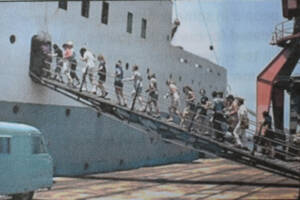
Phil: One of the other life-changing episodes in my life was halfway through the voyage. We were just leaving the Seychelles, which is the furthest point we were going to be from home. At one o’clock in the morning, the Dean knocked on my cabin with a telegram that my mom had died. But the very next day, Bonnie came to me and said, “I understand what you’re going through. I lost my dad last year,” and we formed a bond. So it’s more than just a traveling bond. It was a bond of sensitivity companionship and support.
We’ve reflected on your journey and how it’s impacted your life. Bringing it up to today – what brought you back?
Bonnie: I think we always said we would do this at some point, that we’d come back. Since Phil is in the travel industry, we’ve been on a lot of cruises, and we try to be careful not to compare them to this because it’s not the same experience. But this kind of program is what we always say we love the best and…this is the kind of experience that we enjoy because there are a lot of like-minded people who are looking for the same thing.
Phil: And I like the term lifelong learners, because that’s what all of us are, we’re looking to learn new things, share, and interact.
Now, looking forward. What advice do you have for current voyagers and prospective voyagers on making the most of this opportunity? What are some things they should think about?
Bonnie: Spend time with people. The best experiences are the local food markets, it’s being genuinely interested in the people and not getting so wrapped up in looking at the major tourist attractions, which of course, we want to see. We want our picture in front of them to show that we’ve been there and to remember that. And those things are important, but they’re less important than finding ways to be with people in an everyday, genuine way.
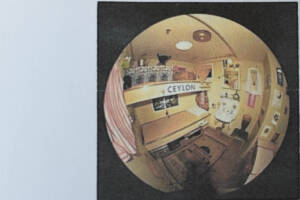
Phil: I would also say because the program continues to get more expensive, that students who are thinking about this experience should not be deterred by the cost. There are scholarships available, and if somebody is committed to doing this, they can do fundraisers, they can do other kinds of things, but just go for it, so that they can experience this because it’s like nothing else…it certainly changed our lives.
Bonnie: I think another thing is to take time to journal or somehow record not just that you were there, but how you were feeling and reflect from the beginning to the end because you’re a very different person when you get on the ship than what you are when you get off the ship.
When you get off the ship, not everybody goes through reverse culture shock, but a lot of people do. And it’s not a bad thing. Because it’s a time for you to really think about how you’ve grown. I often say the ship experience itself is the start of the journey. The journey really comes as you begin to think about how this has impacted your life and the different directions you take.
You may change your career, you may change the friends that you have. A lot of things may change, because you’re a different person when you [come] back.
Phil: Don’t think of it just as a trip that will be fun. It is an investment. It’s an investment in your future. We look back on it almost every day.
This interview was conducted aboard the MV World Odyssey and has been edited for length and clarity.
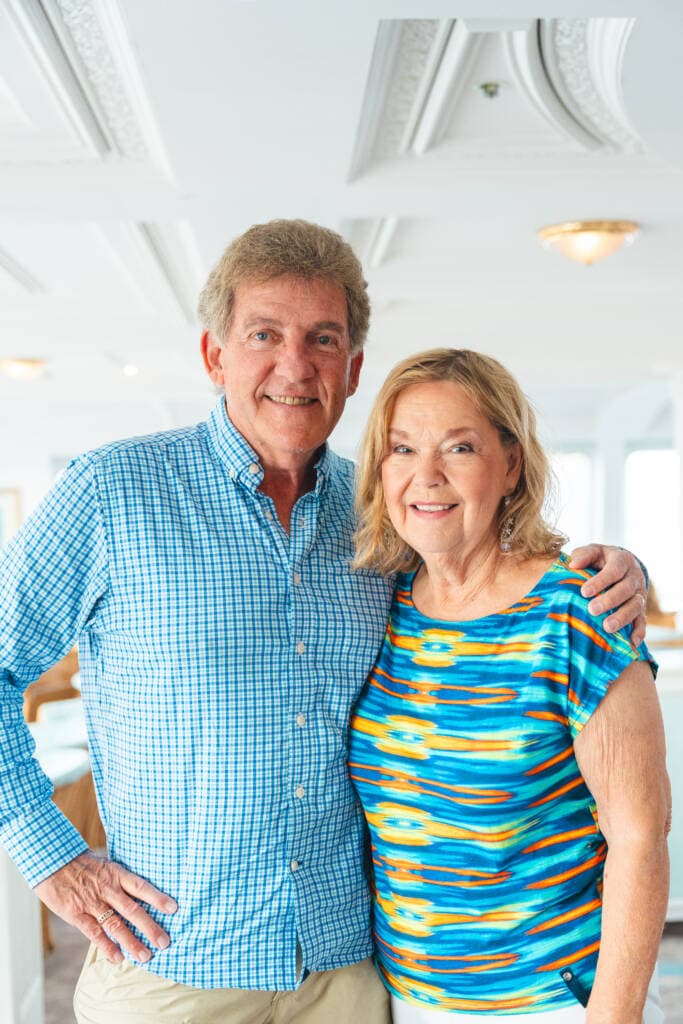
Interested in sailing as a Lifelong Learner?
Traveling as a Semester at Sea Lifelong Learner provides adult learners 30 years of age or older with an opportunity to join the SAS academic community. Lifelong Learners add a valuable generational element to the Semester at Sea shipboard community. They are retirees, professionals on leave, or simply adventurous travelers who desire to study with bright, enthusiastic undergraduate students from around the world. Semester at Sea is a travel experience designed for curious learners who want to push beyond the tourist paradigm and experience the heart of cultures around the world.
